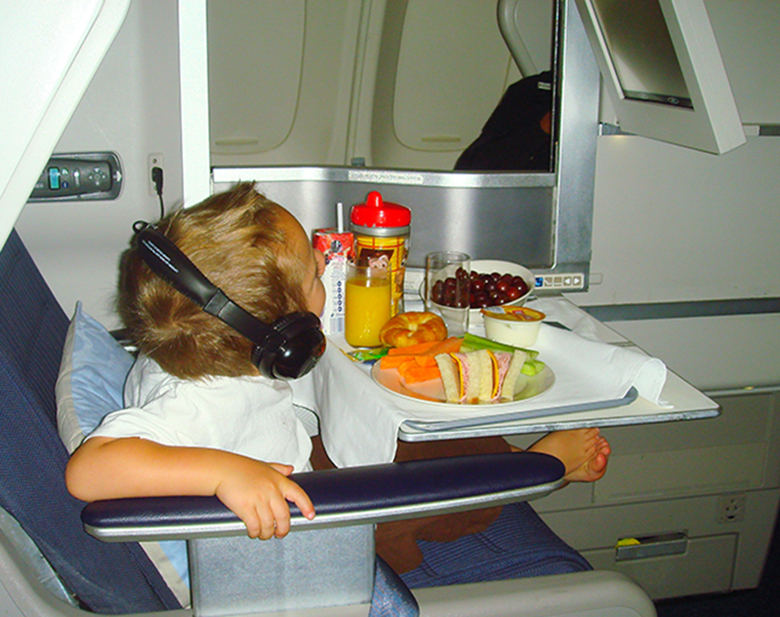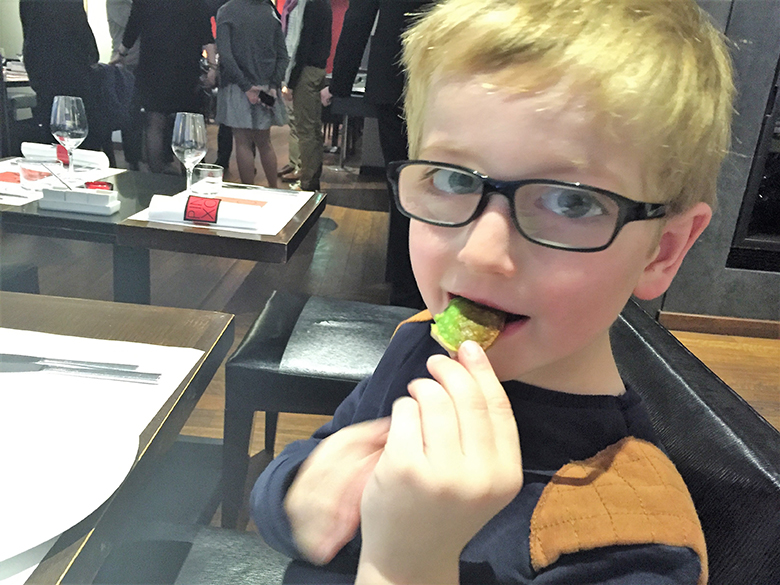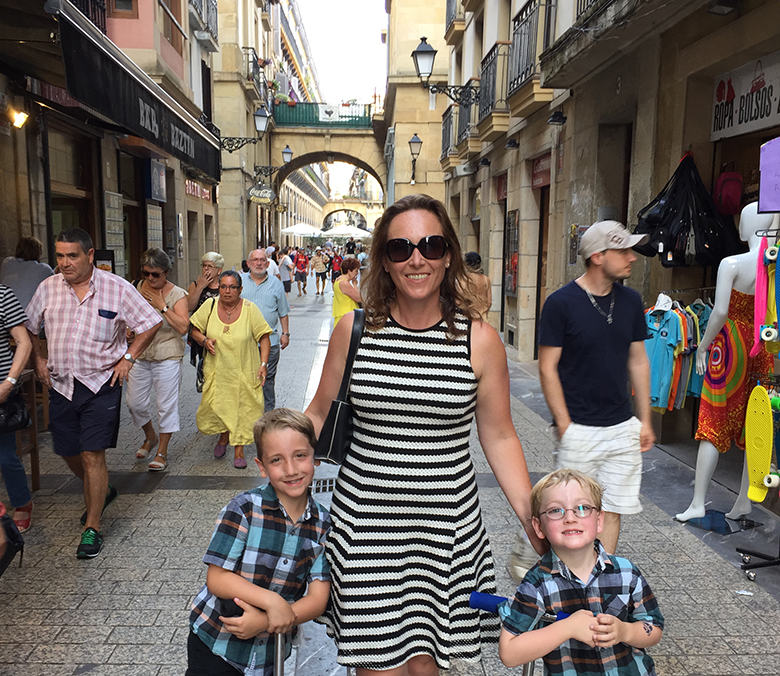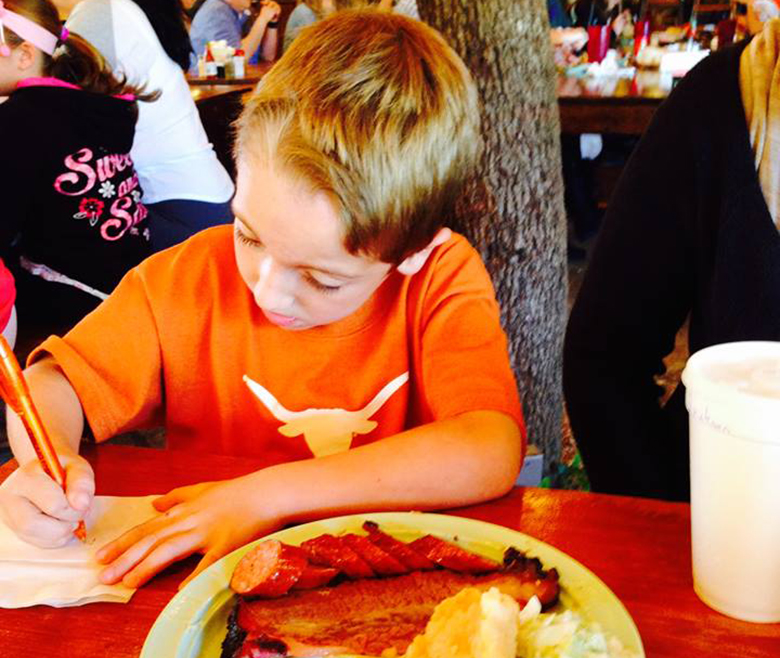Three months ago, when I first started out on this blogging journey, I met a new friend on Instagram called Faye. A fellow Englishwoman, Faye and I instantly bonded over our shared love of travel and adventure. Faye wanted to know more about Lake Tahoe and my upcoming trip to Arizona. I wanted to know more about her visit to Easter Island (a destination that has long been on my bucket list). At some point we got to talking about an experience that she had had at a hostel with her fiancé. Her story inspired me to write this family travel etiquette article.
You see it is easy to assume that travel etiquette is something that applies only to adults. It’s also easy think of air travel when you picture bad behavior. After all, there are so many horror stories about adults behaving poorly on planes. Yet respectful behavior should be a universal requirement for any kind of travel. It doesn’t matter if you are pint sized or fully grown.
Faye’s own travel issue arose because of an inconsiderate family that was staying in the same hostel. Like most young kids, the boy in the room next to hers was an early riser. Only, instead of getting up with their child and quietly starting their day, the parents chose to let him run riot in the communal hall at 5 am each morning. And when I say run riot, I mean it. Think screaming, shouting and lots and lots of banging. Obviously this is not acceptable behavior from anyone (big or small).
But it does beg the question: what is basic etiquette for families traveling with kids? In this post, I’ll do my best to channel the prowess of the late, great, Emily Post to offer up a couple of pointers.
Set Expectations

Setting ground rules shouldn’t just be something that you do with bigger kids. From a very young age, I’ve talked to my children about how I want them to behave in certain situations. Telling them, in advance, that we are going to a very nice restaurant, and that they need to be quiet and respectful for the duration of the meal, has always ensured good behavior.
When flying, I make sure to tell my kids the length of the flight, as well as what their schedule will be. For instance, on long-haul and redeye flights, they know that they are only allowed to watch one movie. After dinner, once the movie is finished, they have to go to “bed” and sleep for at least five hours. This ensures there are no surprises, and there is no pouting or whining about wanting to watch another movie.
Similarly, I talk to them about the destination they will be visiting and what they will likely see and experience. In fact, this has become so ingrained that my youngest now proactively does his own research, via Discovery and National Geographic videos.
Mind Your P’s & Q’s

I heard the “mind your p’s and q’s” phrase a lot, while growing up in England. It basically means watch your manners. And, by manners, I’m talking about the Oxford Dictionary definition: behavior that is considered to be polite in a particular society or culture.
It should go without saying that releasing your toddler or preschooler, unchaperoned, into a common area at 5 am in the morning is not just impolite, but also potentially dangerous. It doesn’t matter where you are located. In fact, any time that you are in a shared environment it is important to at least try to be respectful and considerate of others. This includes stopping your kids from kicking the seat in front of them on a plane. Making sure that they don’t destroy other people’s property. And discouraging them from jumping off furniture and/or running up and down hallways when there are people below and around you.
For travel, it also means going the extra mile (pun intended). For instance, I make a point of learning and teaching, both myself and my kids, how to at least say “please,” “thank you,” “hello,” and “goodbye” in the language of where we are visiting. Additionally, when my kids were young, I would have various games and activities in my purse to keep them quietly entertained on long flights. Similarly I would give them a bottle or sippy cup during take-off and landing. That way I never had to worry about them disturbing other passengers with inconsolable crying due to airplane ear.
Encourage Your Children to Embrace Local Customs

Teaching children to be mindful is never a bad thing. While it is always important to do some research in advance of international travel, your family can easily adopt local customs and etiquette from simple on-the-ground observation. Have your kids pay attention to informational signage. Encourage them to watch and mimic what others are doing around them. That includes trying new foods.
When I lived in Japan as a teenager, I quickly discovered several local customs. I learned to take my shoes off before entering someone’s home. How it was absolutely not o.k. to leave my chopsticks sticking up inside my bowl of rice. And I was careful with my gesticulations. Instead of pointing to where I wanted to go with my index finger, I would use an open hand. And you know those moist towels that you sometimes get at nice restaurants here in the U.S.? Well they are very common in Japan. However you must only use them to lightly clean your hands. If you wipe your face, it is considered rude.
Of course, some behaviors need to be identified before you set off on your travels. For instance, if you know you will be visiting religious sites, check to see if there is a dress code. Some countries, like Italy, require you to cover your shoulders before you enter. They also may not allow clothing above the knee.
The same goes for tipping. While tipping for services feels more or less mandatory in the U.S., many countries around the world don’t practice tipping. For instance, if you tip in Japan, it can be considered an insult. And back in the country of my birth, tipping in England remains somewhat rare. You don’t tip your cab driver, or your bartender. Yet you may tip at a restaurant if a service charge hasn’t already been added to your bill. If you are unsure of tipping practices in the country you are visiting, check out this tipping guide from the Lonely Planet.
Teach Your Child to be an Ambassador for their Country

Whether you like it or not, when you travel abroad you are representing your country – in much the same way as an Olympic athlete represents their country. What your kids say, do, and how they behave, will shape the perceptions of those around them. If your children are loud and unruly, assumptions may be made that your kids’ behavior is typical for children from [insert your country here].
A good way to encourage appropriate behavior is to highlight the actions of other children. I’ll never forget taking my kids to San Sebastian, in Spain. They were about 5 and 7 at the time. The local kids were so noticeably well-behaved that I pointed it out to my kids. My simple observation had a direct impact. Both of my boys began to observe their Spanish peers more closely, and I could see them trying to replicate similar behaviors. Of course, calling attention to bad travel behavior can be a family etiquette lesson too.
And let’s not forget how we, as parents, behave when traveling. Children are natural mimics. And no one is more influential than a parent when it comes to showing children how to behave. If you are open, warm, considerate and respectful when traveling, the chances are your children will try to be the same. Conversely if you are constantly yelling at your kids in public, they may think its ok to shout or be loud as well. That said, do not be afraid to quietly discipline your children when needed. It has a much better outcome in the long run than simply turning a blind eye.
Use Common Sense

Another lesson I learned was when I took my eldest on a mommy-and-me trip to Austin, Texas, to visit with a friend. We were at the famous Salt Lick Bar-B-Que, when I noticed my son was behaving different to normal. He was getting fidgety and excited and his volume had increased. I made a comment along the lines of: “what has gotten into you; that is not how you behave in a restaurant”. My friend pointed out that the waitress had refilled my son’s soda cup while I was in the bathroom. Having two cups of soda, resulted in sugar overload. His body simply wasn’t used to that much soda.
My point is, if you want your kids to behave when traveling, there are a few basics that you need to do as a parent. This includes making sure your children have plenty of sleep; that you are feeding them at appropriate times; and that you are limiting their access to sugar.
Happy Travels!
P.S. Feel free to share your own family travel etiquette advice below.
